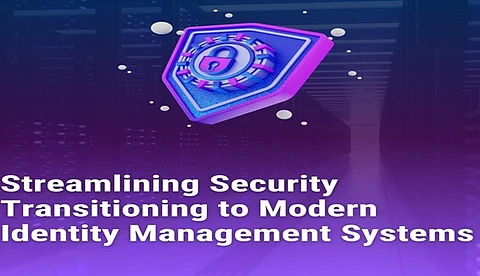

In today’s digital era, identity management plays a pivotal role in safeguarding enterprise security and enabling seamless operations. Kanaka Maheswara Rao Chennuri, an expert in advanced security frameworks, emphasizes how modern Single Sign-On (SSO) solutions are revolutionizing identity management. These advancements not only enhance security but also streamline operations, improve user experiences, and establish a solid foundation for addressing evolving technological demands in today’s complex digital ecosystem.
Identity management has undergone a remarkable evolution, progressing from manual, closed-network systems to sophisticated, scalable, and cloud-native architectures. Traditional systems, originally designed for static environments, struggled with scalability, integration, and the increasing complexity of security demands. These outdated frameworks often required significant manual intervention to handle security breaches or adapt to evolving requirements. Modern identity solutions leverage cloud technologies, multi-factor authentication (MFA), and real-time analytics, reducing security incidents by 82% and offering sub-second authentication times. These innovations are critical for supporting the operational agility of global organizations.
Legacy identity management systems present significant challenges, including slow response times, limited integration capabilities, and outdated security protocols that hinder modernization efforts. These systems, often reliant on hierarchical authentication models, are insufficient to meet the dynamic requirements of today’s enterprises. Organizations transitioning to modern architectures report eliminating bottlenecks, achieving 95% faster access control, and ensuring compliance with stringent and evolving security regulations. This shift also mitigates operational risks, reduces maintenance costs, and improves overall efficiency in managing user identities.
Single Sign-On (SSO) solutions have become a cornerstone of modern identity management, offering secure, seamless, and efficient access to diverse applications. These systems incorporate advanced features, including multi-factor authentication, biometric verification, dynamic conditional access policies, and real-time threat detection, to fortify security. SSO significantly reduces friction in user authentication, achieving a 70% decline in password-related issues and an 85% boost in user satisfaction metrics. By streamlining authentication processes, reducing administrative overhead, and enhancing system reliability, SSO solutions drive operational efficiency, ensure compliance, and safeguard sensitive organizational assets against emerging threats.
Modern SSO systems leverage Zero Trust principles, shifting from perimeter-based security models to continuous, identity-centric validation mechanisms with enhanced security capabilities. This approach ensures that every access request undergoes dynamic evaluation based on multiple contextual factors, including user behavior, device health, and location. Organizations adopting Zero Trust architecture achieve a 92% reduction in unauthorized access attempts, enhance threat detection efficiency, and significantly improve their threat response capabilities. This advanced framework enables proactive security measures, seamless user experiences, and ensures organizations remain resilient against rapidly evolving and increasingly sophisticated cyber threats.
Transitioning to modern identity management systems requires meticulous planning, phased implementation, and effective risk management strategies to ensure success. Organizations implementing structured migration plans report an 85% reduction in disruptions during the transition process and a 90% improvement in implementation success rates. Pilot deployments targeting 10-15% of the user base enable enterprises to address potential challenges early, gather feedback, and refine their approaches for broader rollout. This careful and iterative approach ensures seamless migration while maintaining operational continuity and minimizing risks.
Modern identity management systems incorporate advanced monitoring, predictive analytics, and real-time threat detection capabilities to enhance security and operational efficiency. These systems process millions of security events daily, improving threat detection by 75% and reducing response times by 60%. Additionally, innovations such as quantum-resistant cryptography, adaptive authentication mechanisms, and machine learning-based analytics bolster the resilience of identity management frameworks. Organizations adopting these systems achieve sustainable improvements in security posture while enabling scalability and flexibility for future growth.
As organizations face increasingly sophisticated cyber threats, innovative identity management solutions are becoming indispensable for ensuring robust security and seamless operations. Emerging technologies like AI-driven behavioral analytics, adaptive security mechanisms, and integration protocols promise to redefine industry standards. These systems not only mitigate current risks but also anticipate future challenges, empowering businesses to remain competitive. Modern identity management frameworks provide scalable, resilient solutions that balance security, user experience, and operational efficiency in a rapidly evolving digital landscape.
In conclusion, Kanaka Maheswara Rao Chennuri highlights the transformative potential of modern identity management systems in addressing today’s complex security challenges. By integrating Single Sign-On (SSO), Zero Trust principles, and advanced authentication mechanisms, these systems establish new benchmarks for security, efficiency, scalability, and adaptability. This evolution equips organizations with advanced tools to confidently navigate digital transformation, ensuring sustainable growth, enhanced user satisfaction, improved compliance, and robust protection against emerging threats in an ever-changing and increasingly sophisticated technological environment.
